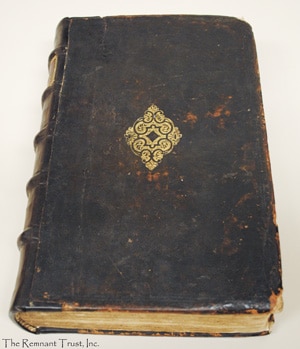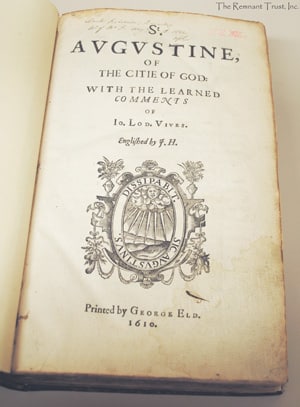Citie of God by Augustine of Hippo

First Edition in English. This work is Augustine of Hippo’s classic book of Christian philosophy entitled “Citie of God,” translated by John Healey from the Latin version and edited by Ioannes Lodovicus Vives (Juan Luis Vives) with Vives learned comments. Healey’s translation remained the only English version until Marcus Dods’ translation in 1871. Written in Latin in early fifth century A.D., “Citie of God” lays out the four key elements of Augustine’s philosophy: the church, the state, the City of God, and the City of Man. The church is divinely established and leads humankind to eternal goodness, which is God. The state adheres to the virtues of politics and of the mind, forming a political community. Both of these societies are visible and seek to do good. Mirroring these are two invisible societies: the City of God, for those predestined for salvation, and the City of the Man, for those given eternal damnation.
Augustine’s famous theory that people need government because they are sinful served as a model for church-state relations in medieval times.
“Citie of God” is considered to be one of Augustine of Hippo’s most important works, along with “The Confessions,” and was one of the most influential works of the Middle Ages.
TITLE: Citie of God by Augustine of Hippo
Published: 1610
Catalogue: #0030





